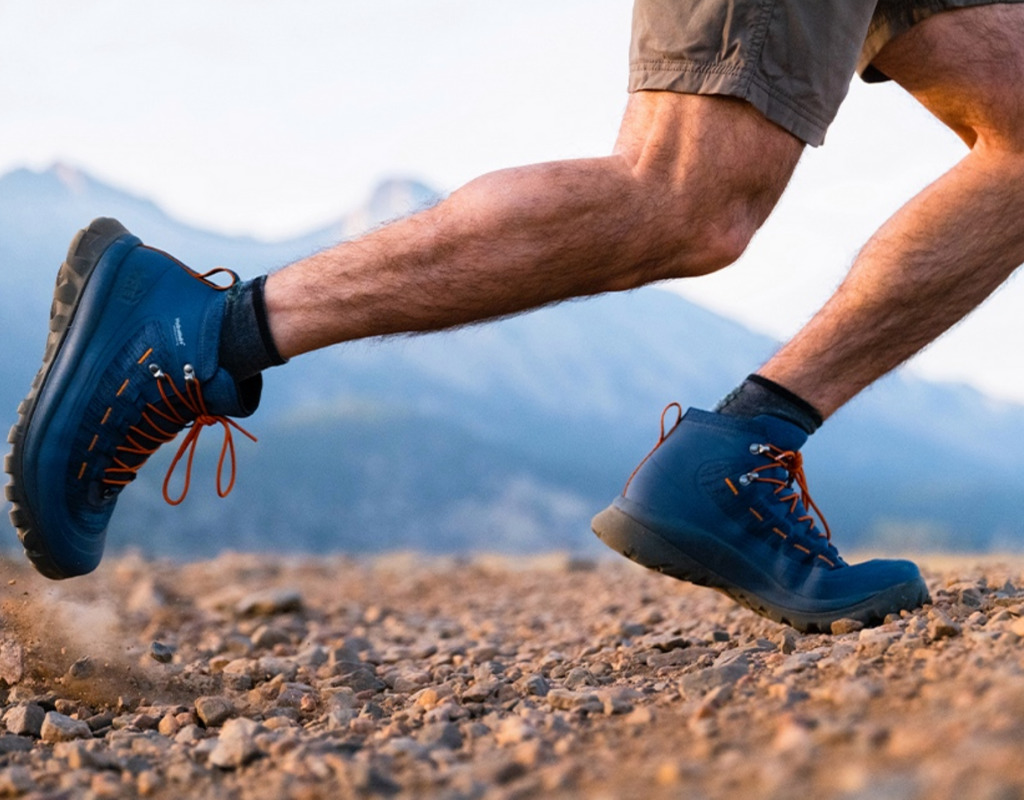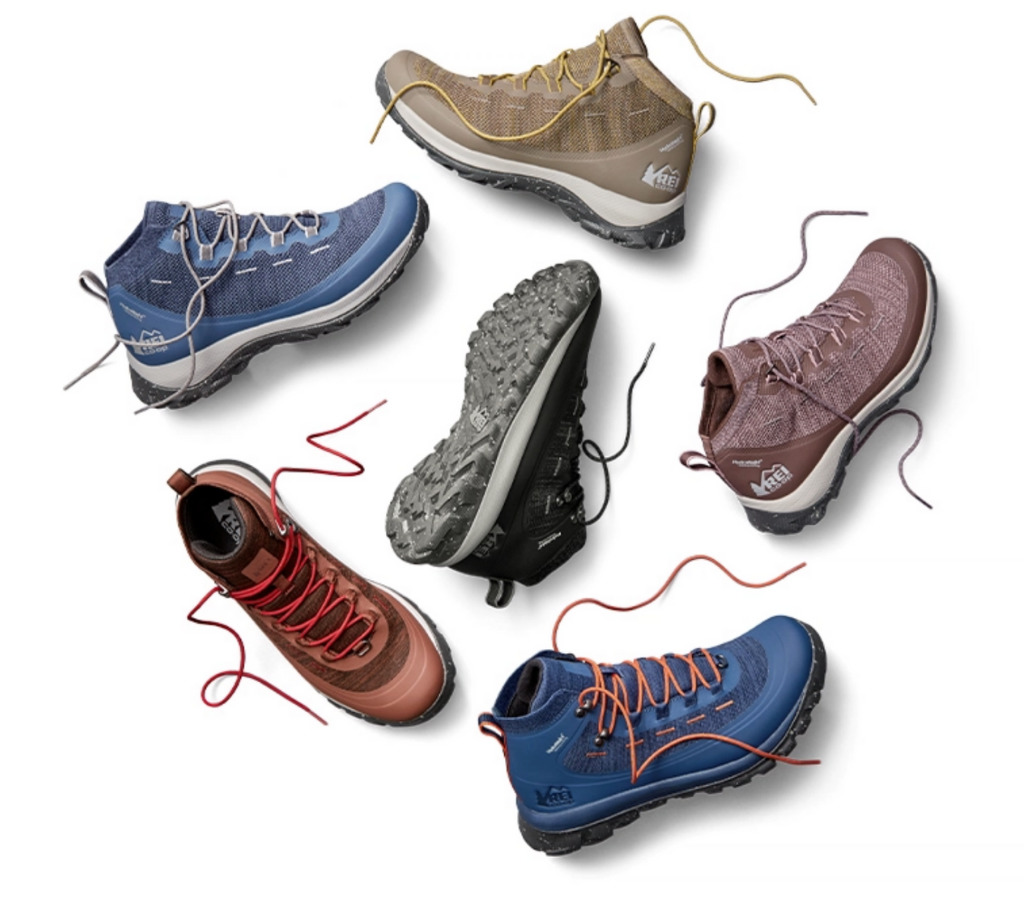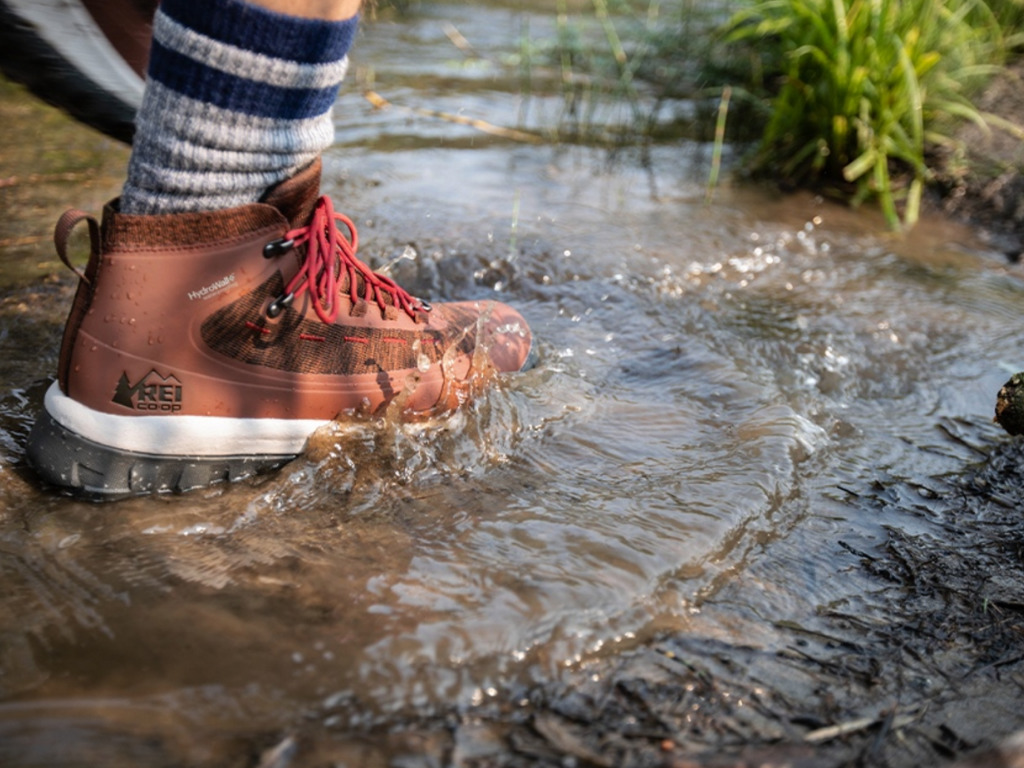4 Mins Read
Outdoor and sporting goods company, REI Co-op has launched its first eco outdoor footwear line, two hiking hybrid shoes dubbed Flash and Traverse. The hiking boots are made entirely out of biobased and various recycled materials. U.S.-based REI, which has been a member-owned co-op since 1938, offers a range of sporting goods, camping gear, travel equipment, and clothing, in addition to its outdoor recreational packages.
The team at REI wanted to provide consumers comfortable and lightweight unisex trail-running shoes. To understand more about what their consumers wanted, they surveyed over 6,000 of their co-op members across the U.S. about their running shoe needs and the results showed a clear priority for comfort and sustainability alike.
Senior product manager for footwear at REI, who managed the design process for the new shoes, Bennett Grimes, said that the team was committed to balancing a planet-forward approach with technical requirements: “We wanted to create hybrid versatility without compromised performance.”
The company has very clear Product Impact Standards, a set of guidelines detailing how member brands can reduce their carbon footprint and incorporate sustainability in their businesses and they held themselves to the same rules during the shoemaking process.
Product sustainability manager at REI, Greg Gausewitz, underscored the importance of creating a shoe that will last: “We looked at the line via three factors. First, you have to put a great product on the market that exceeds customer expectations. Once that product is in the customer’s hands, you want to keep that product in use for as long as possible because any product they don’t have to buy is one less product that creates more waste. Finally, you want to minimize the environmental impact of manufacturing within that framework.”

The first shoe, called Flash, is a traditional hiking boot—it is water-resistant and has a long, thin piece of nylon in the midsole to keep the hiker’s feet safe from rocks and other trail debris. The shoe’s upper is developed from recycled thermoplastic polyurethane (TPU).
We looked at the line via three factors. First, you have to put a great product on the market that exceeds customer expectations. Once that product is in the customer’s hands, you want to keep that product in use for as long as possible because any product they don’t have to buy is one less product that creates more waste. Finally, you want to minimize the environmental impact of manufacturing within that framework
Greg Gausewitz, product sustainability manager at REI
Foregoing conventional leather for toxicity and environmental reasons, REI chose a knit compound known as FirmaKnit made from 99% recycled plastic bottles. For the water-resistant technology, the team built their own system called HydroWall, which is created out of 75% recycled polyester.
The second shoe, named Traverse, is meant to be worn for long adventures like backpacking trips, and apart from being water-resistant, it is strong enough so as to not fold on rough trails. The Traverse is also wrapped with a triple layer of recycled TPU for protection.
For the midsole, the brand partnered with Bloom, a company that converts algae into a foam. “The cool thing is that not only can we control the density, but algae allows us to use 10% fewer fossil fuels when creating our midsole system. The TerraLoft midsole is topped with a carefully designed insole called TrailBed, which is constructed from a corn-based polymer called Susterra,” Grimes added.

Both shoes feature outsoles made from grounded waste rubber with 20% recycled content instead of petroleum-based synthetic rubber.
And apart from the protective TPU which has 30% recycled content, the midfoot has a 100% recycled webbing cradle system and 100% recycled shoelaces.
The nylon skank and four metal speed hooks near the ankle are the only features that weren’t created using bio-based materials or recycled content.
Grimes added: “What happened throughout that journey is that we also created the solution: a go-to, get-out trail shoe with a lighter footprint.”
Other companies rethinking sneaker and performance shoe materials include Hong Kong’s homegrown brand Lono that debuted 100% vegan sneakers made from natural materials, London-based material science firm Pangaia‘s zero-waste sneaker developed from grape waste, and Thousand Fell‘s world’s first completely recyclable shoe.
Lead image – Traverse shoe, courtesy of REI Co-Op.




